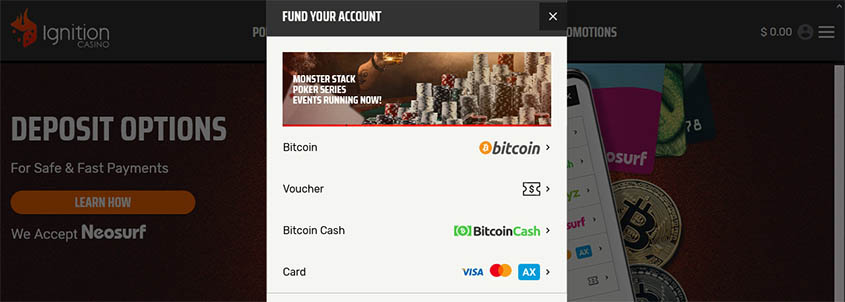The online poker landscape in Australia presents a complex situation shaped by strict federal regulations and evolving player preferences. Australian residents face significant legal barriers to accessing real-money online poker domestically, which has forced the market toward offshore operators and alternative gaming options. Understanding both the legal framework and available alternatives is essential for players navigating this restricted environment.
Legal Landscape for Poker in Australia
Overview of Interactive Gambling Act 2001
The foundation of Australia's online poker restrictions stems from the Interactive Gambling Act 2001 (IGA), which prohibits unlicensed operators from offering interactive gambling services—including real-money poker—to Australian residents. The law was designed to protect consumers from unregulated and potentially unsafe platforms by shifting regulatory responsibility to operators rather than individual players.
For many years following this initial legislation, the law's wording created ambiguity, and offshore sites continued operating in Australia with limited government intervention. However, this changed dramatically in 2017 when the Australian Senate passed the Interactive Gambling Amendment Bill, which closed loopholes that had allowed offshore sites to continue serving Australian players. This amendment effectively banned real-money online poker outright, with the government warning operators of potential fines exceeding AUD $1 million.
Impact on Players and Banking Restrictions
The legal restrictions have created substantial barriers to player access. Most major offshore poker operators—including PokerStars, 888Poker, and PartyPoker—withdrew from the Australian market following the 2017 amendments. Additionally, Australian financial institutions are legally barred from processing payments related to real-money gambling on offshore poker platforms.
As of June 2024, Australian law prohibits the use of cryptocurrencies and credit cards for online gambling deposits, though some players have circumvented these restrictions through alternative payment methods. The Interactive Gambling Act enforcement is handled by the Australian Communications and Media Authority (ACMA), which issues fines and blocks illegal sites, while AUSTRAC monitors the sector for money laundering and terrorism financing risks.
Despite these legal prohibitions, individual players face minimal enforcement risk. The law applies specifically to companies "offering or advertising gambling services" rather than to individual players, and very few Australians have been prosecuted for using offshore poker sites. However, this legal gray area remains uncertain and carries potential risks.
Offshore Poker Sites Available to Australian Players
CoinPoker: Cryptocurrency-Focused Operations
CoinPoker has emerged as a strong option for Australian players seeking to engage with offshore poker sites. The platform's primary advantage lies in its cryptocurrency-centric approach, which allows players to circumvent traditional banking restrictions imposed by Australian financial institutions. This makes CoinPoker particularly appealing for players seeking to deposit and withdraw funds without relying on conventional payment methods blocked by Australian law.
The platform offers competitive rakeback structures and a diverse game variety, including cash games and tournaments across multiple stakes. CoinPoker's focus on blockchain technology and decentralized transactions provides an additional layer of privacy for Australian players concerned about banking scrutiny.
Ignition Casino: Established Player Favorite
Ignition Casino has consolidated its presence as one of the few major offshore operators continuing to serve Australian players without interruption. The platform remained operational even after the 2017 amendments, demonstrating its commitment to the Australian market despite regulatory pressures.
Ignition Casino attracts Australian players through competitive bonus offerings, substantial welcome packages, and a wide range of poker variants. The site features both cash games and tournaments, with particular strength in mid-stakes and recreational player markets. Its longevity in the Australian market has built player trust and established it as a reliable option despite the legal ambiguities.
Additional Options: Juicy Stakes and Intertops
Juicy Stakes Poker and Intertops represent additional viable options for Australian players. Both platforms have maintained operations serving the Australian market and offer various promotional structures designed to attract players. These sites typically feature solid tournament schedules, competitive cash games, and bonus incentives aimed at both new and established players.
Payment Methods and Banking Considerations
Cryptocurrency as Primary Solution
Given Australian banking restrictions, cryptocurrency has become the primary payment method for Australian players accessing offshore poker sites. Bitcoin and other digital currencies allow players to deposit and withdraw funds while bypassing Australian financial institution restrictions that prohibit gambling-related transactions.
However, the 2024 updates to Australian gambling law introduced stricter controls specifically targeting cryptocurrency transactions for gambling purposes, creating additional uncertainty for players relying on this payment method. Players should remain aware of evolving legal interpretations and potential changes to cryptocurrency restrictions.
Free-to-Play Alternatives
For players seeking legal alternatives, social casinos and free-play poker platforms operate within Australian law by using virtual chips without financial risk. Platforms like Replay Poker offer skill-based gameplay and optional in-game purchases that do not constitute real-money betting, providing a legally compliant option for poker enthusiasts.
Live Poker Venues Across Australia
Major Tournament Venues
Live poker operates without legal restrictions in Australia, with nothing prohibiting the playing of live poker at physical venues. Major poker rooms exist in Australia's largest cities, providing tournament and cash game opportunities for players seeking face-to-face gameplay. These venues operate under state-based gaming regulations distinct from the federal Interactive Gambling Act restrictions on online platforms.
Gaming Machine Regulations
While not traditional poker, Australia's gaming machines—colloquially known as "pokies"—represent a significant portion of the country's gambling landscape. These land-based machines operate legally under strict state regulations designed to reduce gambling-related harm. However, the Interactive Gambling Act 2001 prohibits online versions of these games, preventing Australian operators from offering virtual pokies to local players.
Regulatory Outlook and Future Prospects
Government Consideration of Licensing
Despite current prohibitions, Australian policymakers have expressed interest in creating a regulated licensing framework for online poker operators. Communications Minister Mitch Fifield previously announced the government was "disposed in a favorable manner to the proper idea of quickly licensing online poker," while Senator David Leyonhjelm advocated that "Australian online poker players deserve to have a safe, regulated environment in which to enjoy their pastime."
Organizations including the Australian Poker Players Association (AOPA) and advocacy groups continue lobbying lawmakers to legalize and regulate online poker, arguing that a regulated market would provide consumer protections superior to the current offshore environment. However, as of November 2025, no comprehensive licensing framework has been implemented, leaving the market in its current restricted state.
Summary: Navigating Australia's Poker Environment
Australian players operate within a highly restricted online poker environment shaped by the Interactive Gambling Act 2001 and its 2017 amendments. Real-money online poker remains prohibited for domestic operators, forcing interested players toward offshore platforms like CoinPoker, Ignition Casino, Juicy Stakes, and Intertops. Payment methods remain challenging due to Australian banking restrictions, though cryptocurrency continues to provide a practical workaround despite evolving legal concerns.
While individual players face minimal enforcement risk compared to operators, the legal status remains uncertain and subject to change. Players seeking a fully legal option can access free-to-play platforms, while those preferring live poker can participate in physical poker rooms operating under state regulations. The ongoing advocacy for regulatory reform suggests potential future changes, though comprehensive licensing frameworks have not yet materialized as of late 2025.






